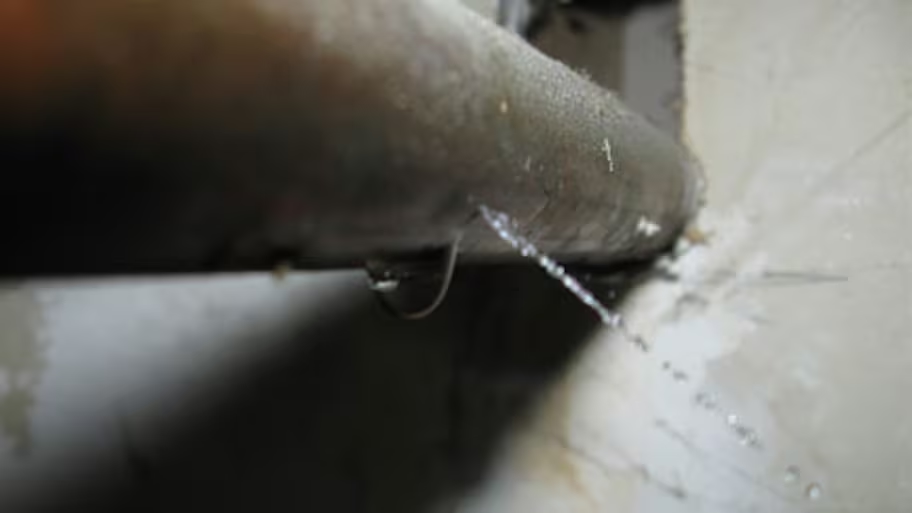Revealing Common Triggers Behind House Water Leak Concerns
Revealing Common Triggers Behind House Water Leak Concerns
Blog Article
Almost everyone is bound to have their personal way of thinking when it comes to Common Water Leaks In House.

Leakages not only cause waste of water but can additionally cause unneeded damage to your residence and advertise unwanted organic development. By looking as well as comprehending for day-to-day situations that cause leaks, you can safeguard your house from future leaks and unnecessary damage.
Encroaching roots
The majority of water leakages begin outside the residence instead than inside it. You might see wet patches or sinkholes in your backyard, and that may indicate that tree origins are invading water lines triggering water to leak out.
Rusty water supply
This might be the cause of staining or bending on your water pipelines. If our plumbing system is old, take into consideration changing the pipelines because they are at a greater threat of corrosion than the newer versions.
Defective Pipeline Joints
The point at which your pipes connect is regularly the weakest web link in the waterline. Pipe joints can degrade gradually, resulting in water leakages. The bulk of pipeline joints are not conveniently visible. If you have noisy pipes that make ticking or banging noises, particularly when the warm water is activated, your pipeline joints are probably under a lot of stress. It is advisable to have your plumber inspect your system once a year.
Instantaneous temperature level modifications.
Extreme temperature level modifications in our pipelines can trigger them to expand and contract all of a sudden. This development as well as contraction might trigger splits in the pipes, specifically if the temperature are below freezing. If you kept an eye on exactly how your plumbing functions, it would be best. The presence of the previously stated circumstances regularly suggests a high threat.
Poor Water Connectors
Sometimes, a leak can be caused by loose pipes and pipes that supply your appliances. Typically, shifting is what creates the loosened water Connections. You may find when it comes to a washing device, a tube might spring a leak due to drinking throughout the spin cycle. In case of a water connections leakage, you might notice water running straight from the supply line or puddles around your appliances.
Obstructed Drains
Blocked drains could be aggravating as well as inconveniencing, yet they can sometimes end up triggering an overflow bring about burst pipes. Keep eliminating any type of products that might decrease your drains pipes that might obstruct them to stay clear of such aggravations.
All the above are sources of leaks but not all water leaks result from plumbing leaks; some leaks may come from roof leakages. All leakages must be repaired immediately to prevent water damages.
Leakages not only trigger waste of water however can likewise create unneeded damage to your house as well as advertise undesirable organic growth. By recognizing and looking for day-to-day scenarios that cause leakages, you can safeguard your house from future leakages as well as unneeded damages. Today, we will look at six leakage causes that may be triggering your pipelines to drip.
At times, a leak can be triggered by loosened tubes and pipes that supply your home appliances. In instance of a water links leakage, you might notice water running directly from the supply line or puddles around your appliances.
How To Check For Water Leak In Your Home
How To Check for Leaks
The average household's leaks can account for nearly 10,000 gallons of water wasted every year and ten percent of homes have leaks that waste 90 gallons or more per day. Common types of leaks found in the home are worn toilet flappers, dripping faucets, and other leaking valves. These types of leaks are often easy to fix, requiring only a few tools and hardware that can pay for themselves in water savings. Fixing easily corrected household water leaks can save homeowners about 10 percent on their water bills.
To check for leaks in your home, you first need to determine whether you're wasting water and then identify the source of the leak. Here are some tips for finding leaks:
Take a look at your water usage during a colder month, such as January or February. If a family of four exceeds 12,000 gallons per month, there are serious leaks.
Check your water meter before and after a two-hour period when no water is being used. If the meter changes at all, you probably have a leak.
Identify toilet leaks by placing a drop of food coloring in the toilet tank. If any color shows up in the bowl after 10 minutes, you have a leak. (Be sure to flush immediately after the experiment to avoid staining the tank.)
Examine faucet gaskets and pipe fittings for any water on the outside of the pipe to check for surface leaks.
Undetected water leaks can happen without the home or business owner even realizing. If you suspect a water leak, but not able to find the source. It is time to contact a professional water leak detection service, The Leak Doctor.
How To Find a Water Leak In Your Home
https://www.leakdoctor.com/blog/How-To-Check-For-Water-Leak-In-Your-Home_AE197.html
As a passionate person who reads on How to detect water leaks in your home, I figured sharing that post was beneficial. Are you aware of anybody else who is fascinated by the topic? Take a moment to promote it. Thanks for your time spent reading it.
Schedule Your Job Now Report this page